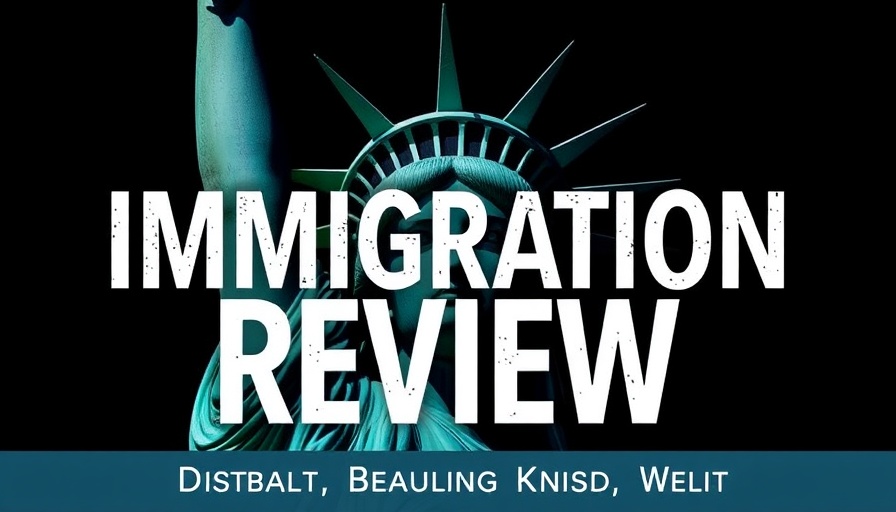
Understanding Recent Supreme Court Decisions on Immigration
The episode titled Ep. 270 - Precedential Decisions from 6/23/2025 - 6/29/2025 provides crucial insights into pivotal Supreme Court rulings affecting immigration law, particularly on issues relevant to birthright citizenship and injunctive relief. As these decisions unfold, their implications will significantly impact immigration practices and the rights of individuals within the U.S.
In Ep. 270 - Precedential Decisions from 6/23/2025 - 6/29/2025, the discussion dives into critical updates regarding immigration law, particularly focusing on recent Supreme Court rulings that shape current practices.
Birthright Citizenship: Court's Controversial Stance
One of the most highlighted cases is Trump et al. v. Casa Inc., which resonates deeply within the immigration community. While the case was expected to address birthright citizenship, it ultimately shifted focus, opting instead to limit federal courts' ability to issue nationwide injunctions. This decision reflects an ongoing trend of cautious judicial engagement with significant immigration matters.
The dissenting opinions, particularly from Justices Sotomayor and Jackson, underscored the tragic trajectory of citizenship rights in the U.S., arguing that the ruling risks undermining centuries of established law regarding birthright citizenship. The call to uphold the very principles enshrined in the 14th Amendment seems overshadowed by procedural points against nationwide injunctions, which many view as vital tools for justice.
The Legacy of Dissent: A Call for Justice
Justice Sotomayor lamented the prevailing political environment that increasingly prioritizes executive over judicial action, suggesting a concerning tack away from democratic norms and the protection of individual rights. This case serves not only as a legal precedent but as a rallying cry for advocates who champion equality and human rights within the realm of immigration policy.
Riley v. Bondi: A Blow to Asylum Seekers
Another significant decision is Riley v. Bondi, which focuses on the appeal rights of non-citizens denied withholding of removal. The Supreme Court ruling introduces a new framework for understanding timelines relating to petitions for review, potentially complicating cases for many non-citizens.
This ruling emphasized the woes faced by those attempting to navigate the intricate immigration judicial system. With appeals now needing to align with the original date of the removal order rather than the denial of relief, many applicants may find themselves effectively barred from obtaining necessary judicial reviews. This was highlighted during a moment of growing desperation within the immigration community.
Implications for Future Cases
As we dissect these cases, it’s crucial for immigration attorneys to stay informed about such developments. The legal landscape is being reshaped by these rulings, which could culminate in broader impacts on access to justice for immigrants. The role of the attorney becomes even more vital as clients face these evolving interpretations of law.
Legal practitioners must prepare thoroughly, advocating for their clients with an understanding of the current judicial climate. Strategies may include proactively filing appeals and utilizing insights from recent case law to craft compelling arguments for individuals seeking relief.
Engage with the Community
Given the ramifications of these rulings, it would be wise for immigration attorneys to join informational sessions or webinars focusing on immigration law. Advocating for systematic changes while providing quality representation will be paramount in facing the challenges ahead. Our community remains resilient; sharing insights, resources, and strategies will position us all better in this complex landscape.
In conclusion, keeping abreast of these significant judicial decisions will equip immigration attorneys with the knowledge needed to navigate these turbulent waters proficiently. Remember, every court ruling can have profound implications on the lives of those you serve.
 Add Row
Add Row  Add
Add 

 Add Row
Add Row  Add Element
Add Element 




Write A Comment